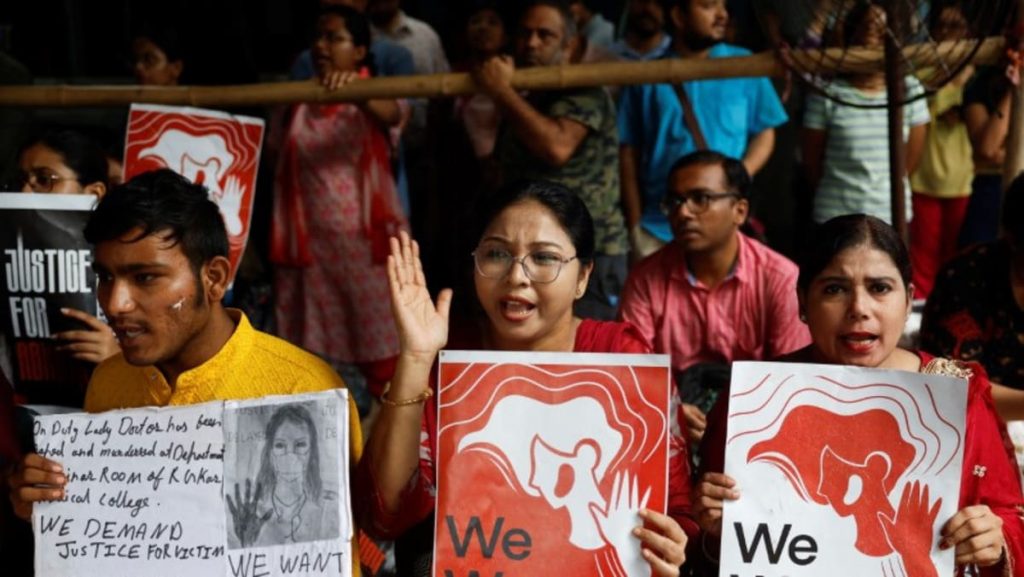The Indian medical professionals have initiated a 24-hour shutdown of non-emergency services across the country in response to the brutal rape and murder of a doctor in Kolkata. The shutdown has affected elective medical procedures and out-patient consultations in the country, with only casualty departments dealing with emergencies remaining operational. The act of violence against the 31-year-old trainee doctor has sparked anger and protests among doctors and women’s groups, drawing parallels to the infamous gang rape and murder case in New Delhi in 2012.
The failure of stringent laws to deter violence against women has fueled the protests by medical professionals and women’s groups. With women forming a majority in the medical profession in India, the need for ensuring their safety has been emphasized by the Indian Medical Association (IMA) president. The strike, which includes more than a million medics participating, aims to highlight the urgency of addressing issues related to violence against women and ensuring a safer work environment for female professionals.
The shutdown of non-emergency services has significantly disrupted medical services in the country, impacting access to elective procedures and out-patient consultations. The closure of these services is a demonstration of solidarity among medical professionals and their commitment to raising awareness about the safety concerns faced by women in the profession. The protest sends a strong message to the authorities and the public about the need for immediate action to address the issue of gender-based violence and ensure the safety of women in all sectors.
The nationwide shutdown of non-emergency medical services highlights the growing concerns about the safety of women in India, particularly in the healthcare sector. The incident in Kolkata has sparked widespread outrage and solidarity among medical professionals, who are calling for stronger measures to protect women in the workplace. The strike serves as a reminder of the ongoing challenges faced by women in India and the urgent need for collective action to address these issues and create a safer environment for all individuals.
The protest by Indian medical professionals reflects a broader social movement against gender-based violence and discrimination in the country. The participation of over a million medics in the strike emphasizes the widespread support for addressing the issue and advocating for women’s rights and safety. The strike is a powerful demonstration of unity and solidarity among healthcare workers and their commitment to creating a safer and more inclusive society for all individuals. The collective action taken by medical professionals sends a strong message to the government and society about the urgent need to address issues related to gender-based violence and work towards creating a more equitable and just society for all.
In conclusion, the 24-hour shutdown of non-emergency medical services in India by medical professionals in response to the rape and murder of a doctor in Kolkata is a powerful act of protest and solidarity. The strike highlights the urgent need for addressing issues related to violence against women in the country and ensuring the safety of female professionals in all sectors. The participation of over a million medics in the strike underscores the widespread support for advocating for women’s rights and creating a safer environment for all individuals. The protest serves as a reminder of the ongoing challenges faced by women in India and the importance of collective action to address these issues and promote gender equality and social justice.















